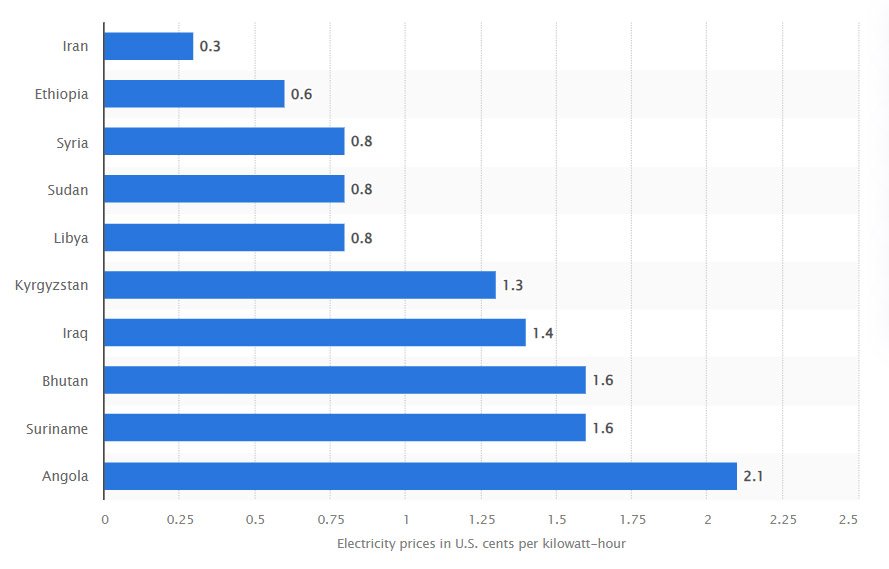In a strategic maneuver driven by the pursuit of cheap energy and favorable climates, Chinese Bitcoin miners have turned their attention to Ethiopia. Displaced from China due to regulatory bans, local Bitcoin miners have been actively seeking locations that offer affordable power and regulatory friendliness, further highlighting Ethiopia China relations.
According to a report by the South China Morning Post, this shift towards Ethiopia gained momentum last spring. The local media started observing cargo containers near electricity substations linked to Africa’s largest hydroelectric project, the Grand Ethiopian Renaissance Dam (GERD).
Ethiopia: A Haven for Miners
Bloomberg cites Luxor Technology, estimating that Ethiopia has risen to the top tier of destinations for Bitcoin mining equipment shipments, with a significant portion being contributed by Chinese miners. This shift is attributed to Ethiopia’s abundant hydropower resources and competitive electricity rates provided by Ethiopian Electric Power (EEP).
Moreover, the Ethiopian government is increasingly open to their presence amid the global scrutiny faced by the industry regarding energy consumption and environmental impact.
Cheap Power and Favorable Conditions
Ethiopia, with its installed generation capacity of 5.3 gigawatts, primarily sourced from renewable hydropower, offers one of the world’s lowest electricity costs. EEP charges a fixed rate of 3.14 US cents per kilowatt-hour, comparable to rates in Texas but with greater stability.

Ethiopia China Relations
Notably, the nation’s ties with several Chinese firms involved in the construction of the $4.8 billion GERD underscore the intended power source for the miners.
The country’s temperate climate aligns well with optimal operating conditions for mining rigs, making it an appealing location for miners seeking sustainability. Despite geopolitical complexities, Ethiopia’s decision to permit Bitcoin mining in 2022 has strengthened its ties with China.
Risks and Economic Prospects
While Bitcoin mining has been permitted in Ethiopia, it still prohibits digital asset trading. On the other hand, allowing Bitcoin mining operations aligns with the nation’s strategy to attract foreign investment, particularly from China. However, this venture is not without its risks, and Ethiopian officials are keeping an eye on the operations due to the controversies surrounding Bitcoin mining.
The government is concerned over the equitable distribution of resources, particularly in a country where nearly half the population lacks access to electricity. The delicate balance between economic gains and social impacts poses challenges for Ethiopian officials navigating the long-term implications. Jaran Mellerud, chief executive of Hashlabs Mining, states:
“Firstly, countries can run out of available electricity, leaving no room for miners to expand. Secondly, miners can suddenly be deemed unwelcome by the government and be forced to pack up and leave.”
As Chinese Bitcoin miners run to Ethiopia, the venture reflects broader geopolitical dynamics. Ethiopia’s eagerness to attract foreign investment aligns with China’s overarching strategy in Africa, fostering a mutually beneficial relationship between the two nations.
Meanwhile, despite a ban on mining activities in the country, China still plays a big role in bitcoin mining, according to a 2022 research by the Cambridge Centre for Alternative Finance.










